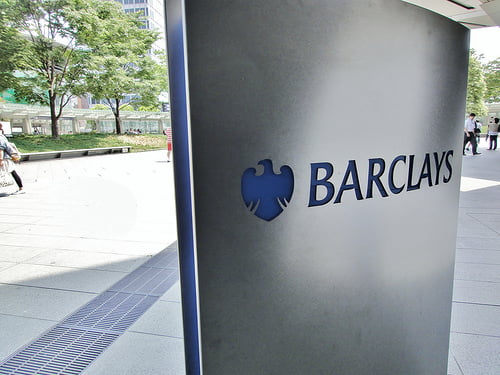

Features
Will Barclays become the world’s first ethical banking superpower?
After a year to forget in 2012, Barclays chief executive Antony Jenkins appears intent on restoring the bank’s Quaker principles of honesty, integrity and plain-dealing. Will it turn into the world’s first ethical banking superpower?
The Libor rate-rigging scandal, a shareholder revolt over executive pay, “aggressive” tax avoidance and an award for “social and ecological offences” made last year an unpleasant one for Barclays, to say the very least.
Its reputation took an arguably bigger hit than any of the other high street banks in the UK and made a mockery of its establishing principles – honesty, integrity and plain-dealing – which were engraved into its foundation in the 17th century by a group of Quakers.
But since it was fined £276m for its role in the Libor scandal last June – after which, chief executive Bob Diamond and chairman Marcus Agius both swiftly resigned – the spotlight of unethical behaviour has focused its attention on other banks.
While HSBC was paying a £1.2 billion money laundering fine, the Royal Bank of Scotland was shelling out for Libor and Lloyds TSB was coping with a £439m half-year loss, a shift change appeared to be happening at Barclays HQ in Canary Wharf.
Replacing Bob Diamond as chief executive in August was Antony Jenkins, who had occupied a number of high-profile positions at Barclays, Barclaycard and Citigroup in a career spanning almost three decades. Judging by his CV, Jenkins was not a man you’d expect to lead an ethical revolution at one of Britain’s biggest banks.
His predecessor Diamond had left the firm in explosive circumstances, and appeared before the Treasury committee to discuss his former employers’ role in the Libor scandal just a day after resigning. Labour MP John Mann, who sits on the committee, was particularly bullish towards the former Barclays chief.
“You’re the man in charge. But you’re accepting all the good things and the bonuses [and] the people working for you are fiddling the system, potentially going to prison”, Mann said, directly to Diamond.
“Give me a suggestion of how you’re going to show contrition to those staff and customers who are wondering whether to take their money out of this rotten, thieving bank?”
Diamond surrendered after over two hours of questioning, accepting responsibility for his bank’s misdemeanour in rigging Libor. But that’s where it more or less all went quiet for Barclays.
Fast forward six months and Jenkins came out with something rather extraordinary. After taking on the chief executive role at a bank riddled with unethical and irresponsible dealings, he took the bold steps to send a memo to all 140,000 Barclays employees across the world, explaining that if they didn’t agree with a renewed set of values, they should quit.
He announced in January that respect, integrity, service, excellence and stewardship will form a five-point ethical code that all employees must adhere to, in an effort to shake off the unwanted legacy left by years of dishonourable behaviour.
Earlier this month, Jenkins told the banking standards committee, “We are shredding that legacy and in the value of stewardship, whoever is sitting in front of a committee in a decade’s time – I want them to have inherited a fundamentally different culture.
“We should shred those behaviours of the past; we should shred situations where we’re short-termist, too aggressive and too self-centred. It’s those things I want to eliminate from our culture.”
A few days later, it was revealed that Barclays would be closing down the part of its business that helps customers legally avoid tax.
Jenkins said, “Although this was legal, going forward such activity is incompatible with our purpose. We will not engage in it again.”
These two steps – although small in terms of what changes are needed in order to truly transform Barclays into a sustainable institution – are entirely welcome. And, dare I say it, a surprise. Research has continued to show that adopting ethical values can only benefit a bank in the long-term, so as well as being an overdue moral choice; it’s a sensible business decision, too.
Sustainable institutions – many of which were profiled in Blue & Green Tomorrow’s Guide to Sustainable Banking last year – were built on similar ethical principles to Barclays. The difference is that they have kept true to these values, and haven’t gone searching for profit at any cost.
The future of the banking sector looks a lot different to the monopolised, high street-led industry we’ve got now. That’s not to say that big banks don’t work; one only has to look at The Co-operative Bank’s model to see this. But the larger financial institutions of the future won’t look anything like the ones we have now.
Sustainability, transparency and accountability will be inherent, and it seems as though Antony Jenkins has realised this. His ambitious pledge to revolutionise Barclays must not be a hollow promise that ends here. He must ensure, going forward, that every part of the company factors in sustainability and leads with customer values at its heart.
This will by no means solve all the problems caused by the financial services industry; nor will it right all the wrongs made by Barclays and other banks in recent years. But what it will do is prove to others that ethical banking really is the right direction of travel, in the hope that others follow suit.
Further reading:
Jenkins promises a ‘better Barclays’ after unveiling ethical strategy
Interest in ethical options surges amid UK banking melee
































